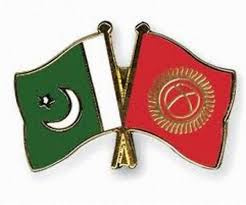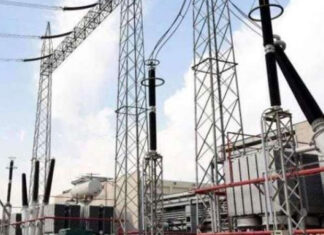Pakistan and Kyrgyzstan have signed multiple protocols and Memorandums of Understanding during the 5th Session of the Pakistan-Kyrgyzstan Inter-Governmental Commission (IGC) on Trade, Economic, Scientific and Technical Cooperation, held in Islamabad on Monday. The session, co-chaired by Minister for Energy (Power Division) Sardar Awais Ahmad Khan Leghari and Deputy Chairman of the Cabinet of Ministers of the Kyrgyz Republic Edil Baisalov, marked a significant advancement in bilateral relations and reaffirmed a shared commitment to expand cooperation across a broad range of sectors.
Despite a noticeable drop in trade volume—from $11.2 million in 2022–23 to $5.18 million in 2024–25—both sides agreed on the urgent need to revitalize commercial engagement. They set a new bilateral trade target of $100 million and emphasized the importance of diversifying import-export portfolios. In this context, discussions focused on reviving the Pakistan-Kyrgyz Joint Business Council, organizing sector-specific trade fairs, and encouraging business-to-business exchanges to generate momentum.
The two countries signed a number of MoUs to formalize cooperation in key areas. One agreement was inked between the Center for Standardization and Metrology under Kyrgyzstan’s Ministry of Economy and Commerce and the Pakistan Standards and Quality Control Authority (PSQCA) under the Ministry of Science and Technology. Another MoU was signed between the National Investments Agency under the President of Kyrgyzstan and the Board of Investment of Pakistan, aimed at bolstering bilateral investment. A third MoU focused on Halal trade collaboration and was signed by the Pakistan Halal Authority and Kyrgyzstan’s Center for Development of Halal Industry.
Energy cooperation emerged as a key pillar of the dialogue. The Kyrgyz side proposed joint participation in a cross-border power transmission line connecting Kyrgyzstan, China, and northern Pakistan. Both countries agreed to explore electricity imports, collaboration in renewable energy, mining, and hydrocarbons, and to strengthen institutional linkages between the Hydrocarbon Development Institute of Pakistan and the Kyrgyz State Technical University.
Regional connectivity also figured prominently in the session. Both sides committed to enhancing cooperation in postal services, civil aviation, cargo, and rail transportation. Pakistan proposed transitioning Kyrgyz airlines from charter services to regular passenger flights. It also welcomed Kyrgyzstan’s proposal to establish a new air corridor linking the two countries via China and expressed interest in further engagement on regional aviation links. Additionally, the Kyrgyz delegation proposed Pakistani participation in a high-speed fiber-optic communication line spanning the Pakistan-Kyrgyzstan route.
In the financial sector, central banks from both countries agreed to expand cooperation in Islamic banking and financial innovation, with technical training programs to be facilitated by Pakistan’s National Institute of Banking and Finance. The health and pharmaceutical sectors also drew focus, as both sides discussed accelerating cooperation in medical education, pharmaceuticals, and surgical exports. Pakistan welcomed proposals to ease registration of Pakistani medicines in Kyrgyzstan and to facilitate public procurement participation. The possibility of launching joint ventures in vaccine and biological product manufacturing was also discussed.
Cultural and media exchanges were highlighted as important avenues for fostering people-to-people ties. Both countries agreed to support regular cultural programming, participation in international sports events, and joint initiatives in cinematography and broadcasting. Pakistan proposed greater media collaboration, including training programs and content-sharing arrangements between national broadcasters and film institutions.
Education and scientific cooperation formed another critical component of the dialogue. The two sides pledged to deepen academic exchanges, promote institutional partnerships, and implement joint training programs. Pakistan reiterated its support for Kyrgyz students through the Pakistan Technical Assistance Programme (PTAP). Labour cooperation was also addressed, with both countries agreeing to form a Joint Working Group to explore the framework for future collaboration in workforce mobility.
Minister Leghari reaffirmed Pakistan’s appreciation for Kyrgyzstan’s offer of access to the At-Bashi Logistics Center for the National Logistics Corporation (NLC), terming it a strong example of enterprise-level cooperation that could be replicated in other sectors. He also noted that enhancing the online visibility of investment opportunities—such as Special Economic Zones, tax incentives, and priority sectors—would further support private-sector engagement.
The session concluded with a mutual decision to hold the 6th IGC meeting in the Kyrgyz Republic, with dates to be finalized through diplomatic channels. According to the Ministry of Economic Affairs, this session represents a critical milestone in Pakistan’s regional strategy, not only with Kyrgyzstan but with Central Asia at large. The comprehensive set of agreements and future-oriented dialogue are expected to accelerate integration, promote sustainable development, and deliver tangible benefits for the people of both countries.























